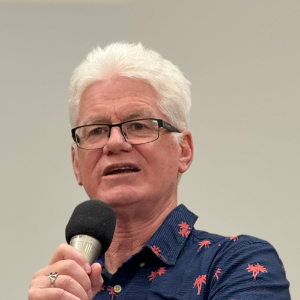Sent Together: House Churches on Mission
Mar 20, 2025
One of the most beautiful aspects of house churches is how naturally we can engage in mission. When church is understood not as a destination but as a community of people sent by Jesus, evangelism shifts from being a program to a way of life shared together.
In traditional church models, there's often a disconnect between Sunday gatherings and Monday-through-Saturday living. But house churches bridge this gap naturally. When your church family is already gathering in the places where everyday life happens, mission becomes less about special events and more about inviting others into the life you're already sharing.
House churches embrace what we might call "missional simplicity"—the idea that effective outreach doesn't require elaborate programs or significant resources. Rather, it happens through ordinary people living extraordinary lives of love right where they are.
This simplicity is profoundly biblical. Jesus didn't instruct his followers to build impressive structures or create complex outreach strategies. He simply said, "As the Father has sent me, I am sending you" (John 20:21). He told them to make disciples as they were going about their lives (Matthew 28:19-20).
What does this mission look like in practice for house churches today?
It might look like throwing parties and inviting neighbours who would never set foot in a traditional church building. It might mean meeting in a public space where curious onlookers can observe and ask questions. It could involve adopting a local school or partnering with community organisations to address practical needs.
House churches often find that their very structure facilitates mission in ways that larger congregations might find challenging:
- Mobility: Without buildings and complex infrastructure, house churches can form and multiply wherever people live, work, and gather.
- Accessibility: For those intimidated by religious institutions, a dinner invitation to someone's home creates a natural, low-pressure environment to experience Christian community.
- Authenticity: Newcomers can see faith lived out in everyday settings—how conflicts are resolved, how children are parented, how meals are shared, how homes are managed.
- Reproducibility: The simplicity of house church makes it easier for new believers to envision starting similar gatherings in their own relational networks.
This approach to mission aligns with what we observe in the early church. The gospel spread primarily through relational networks—households, marketplaces, neighbourhoods. People encountered the good news not through marketing campaigns but through transformed lives in their midst.
House churches today are rediscovering this relational approach to mission. Rather than trying to attract people to events, they're equipping members to bring the presence of Christ into their existing relationships and contexts.
This doesn't mean house churches never engage in organized outreach. Many do—serving together hosting community events, or supporting global missions. But these activities flow from relationships rather than replacing them.
At The House Church Network, we believe every spiritual family is sent on mission together. We're passionate about equipping house churches to discover the unique ways God is calling them to embody and proclaim the good news in their specific contexts.
Whether your house church gathers in an urban apartment, suburban living room, or rural farmhouse, you're strategically placed to reach people who might never connect with institutional Christianity. Your ordinary home can become an extraordinary outpost of God's kingdom—a place where people experience belonging before believing and see the gospel lived before hearing it explained.
This is the beautiful simplicity of house churches on mission: ordinary people, in ordinary places, living the extraordinary reality of God's love together.



